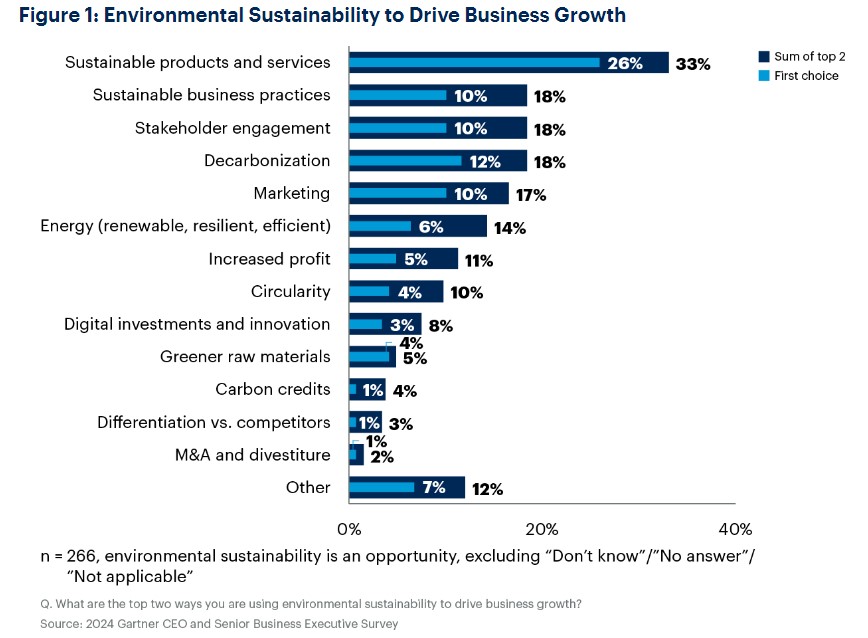While climate change is impacting operations, business leaders are eyeing up the potential in environmentally-aligned policies, products and services.
The 2024 Gartner CEO and Senior Business Executive Survey includes 400 CEOs from across North America, Europe, Asia-Pacific, Latin America, the Middle East and South Africa. Participants represented a broad range of sectors and companies.
‘As CEOs reset their long-term strategies, environmental sustainability remains one of the leading factors that will frame competition,’ said Kristin Moyer, Distinguished VP Analyst at Gartner. ‘Despite much corporate greenwash, recent economic conditions could have triggered a reversion to environmental, social and governance (ESG) cynicism and a refocus on profit at all costs. However, the overall commitment of CEOs appears unwavering.’
CEOs are using sustainability to drive business growth in three key ways. These are through the development of sustainable products and services (33%), sustainable business practices (18%), stakeholder engagement (18%), and decarbonisation (18%). Just 8% listed digital investments and innovation as the focus.

‘Sustainability consistently remains a top 10 business priority, surpassing even productivity and efficiency this year,’ Moyer continued. ‘Leaders and investors know environmentally cavalier corporate behavior is a mid- to long-term risk to business results, with a big price to be paid when environmental factors are ignored as externalities. However, smart CEOs realize big sustainability challenges create new areas of business opportunity.’
Gartner’s survey also revealed the biggest impact of changing weather patterns in the eyes of CEOs. 30% believed the most significant effect had been on operating dynamics, and in particular logistics like warehousing, timing and routing of deliveries. Relocations, including nearshoring, were the second most common issue, cited by 14% of respondents, followed by automation, technology and data (13%).
You can read the full report here.
- SEO Powered Content & PR Distribution. Get Amplified Today.
- PlatoData.Network Vertical Generative Ai. Empower Yourself. Access Here.
- PlatoAiStream. Web3 Intelligence. Knowledge Amplified. Access Here.
- PlatoESG. Carbon, CleanTech, Energy, Environment, Solar, Waste Management. Access Here.
- PlatoHealth. Biotech and Clinical Trials Intelligence. Access Here.
- Source: https://environmentjournal.online/net-zero/69-of-ceos-view-sustainability-as-a-growth-opportunity/


